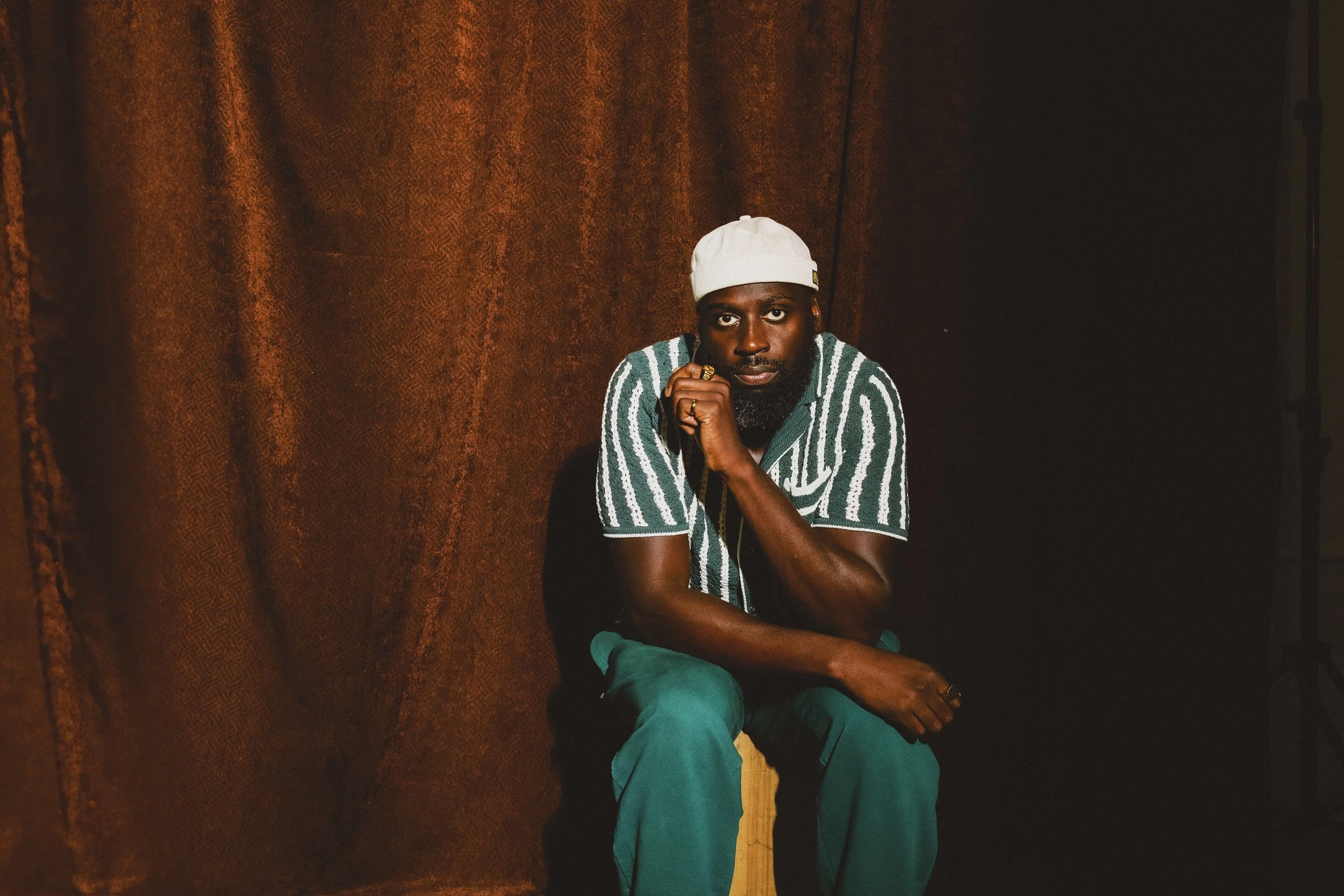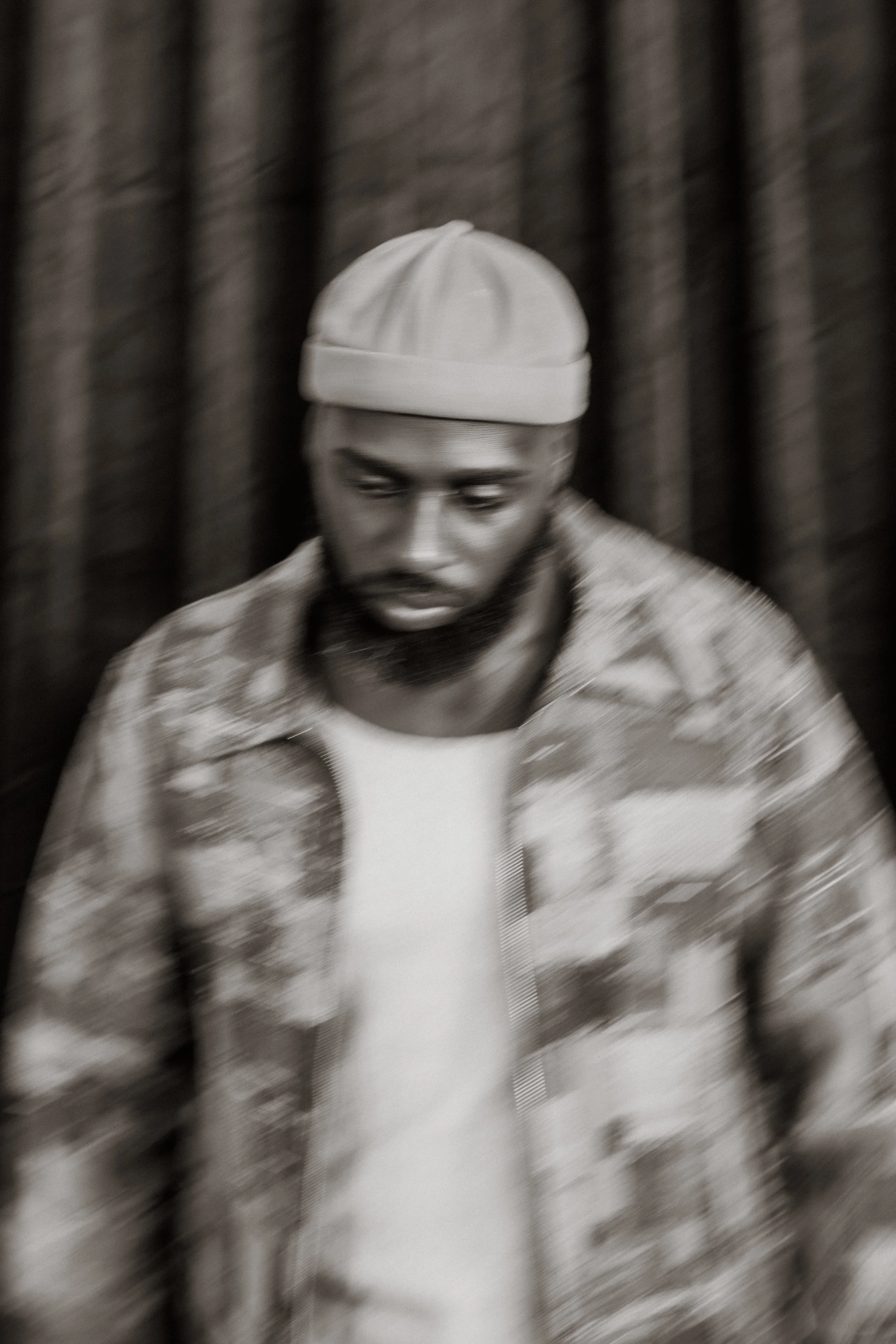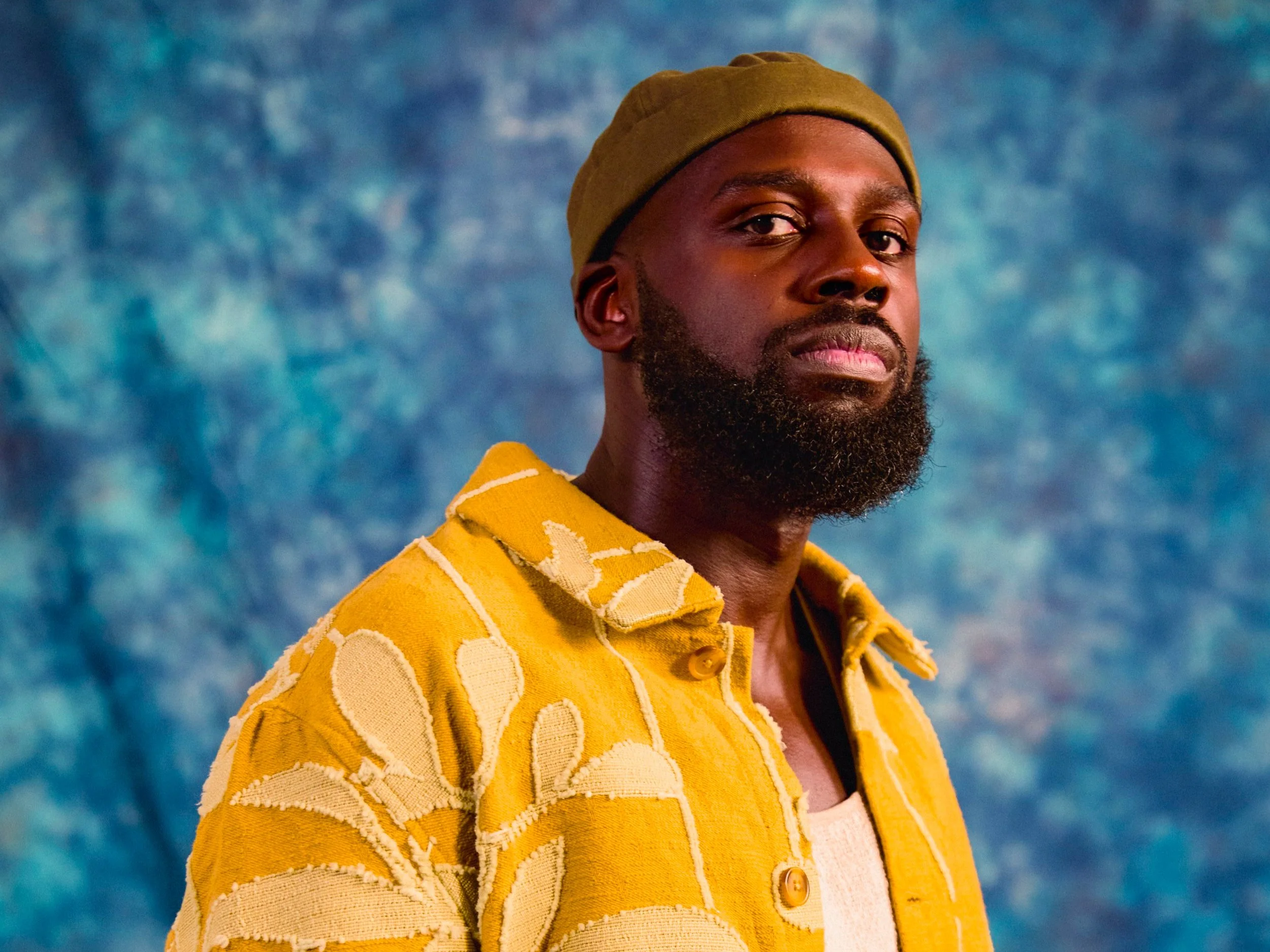Pushing Limits: NIJI on Art, Music, and Honouring His Roots
NIJI talks to The Culture Crypt ahead of the release of his new album, discussing his inspirations, creative process, and how he's redefining joy through music and art.
Have you ever wanted to spit a 16 while listening to sweet, soulful jazz? If not, it may be because you're unfamiliar with jazz titan Niji Adeleye. East London born and raised—NIJI has seamlessly blended the worlds of jazz and contemporary sounds, creating music that resonates across diverse audiences and styles with effortless precision.
Beginning his professional career at just 14, he has collaborated with renowned artists, including performing alongside Harry Styles during his two-year Love on Tour run from 2021 to 2023. But NIJI's journey started even earlier. His 2015 debut album, Better Days Ahead, climbed to number three on the iTunes Jazz Charts, showcasing his exceptional talent. Beyond his recording achievements, he has graced prestigious venues such as London's Royal Albert Hall and has become one of the world's most sought-after pianists.
NIJI's new single, "Mo Ti Dele", adds another layer to his growing catalogue of work, blending jazz with fresh, contemporary sounds. As he continues to evolve as an artist, "Mo Ti Dele" offers a glimpse into what's to come on his upcoming album ORÍKÌ, a musical tale of his Great-Grandmother's resilience. With each release, NIJI reinforces his position as a prominent figure in modern jazz.
The Culture Crypt: You were born and raised in East London. Has that affected your music or your identity as an artist?
NIJI: "Growing up in East London gave me the privilege of witnessing the evolution of grime and garage—primarily grime—from its inception to what it is now. I grew up with it. East London is also heavily Nigerian, and as a Nigerian, these influences have played a massive role in shaping my life and music."
You started playing some instruments at a young age. Has learning so organically and being around music from a young age shaped your perception or approach?
"I think every boy becomes addicted to something between the ages of 14 and 18, whether playing football or PlayStation. It just happened to be playing piano and joining jazz bands. Starting at 14, I got involved with a local music service in my community in Dagenham, and that meant I was playing in loads of jazz bands really early, from 14 to 17. That experience shaped how I heard music and arrangements."
Who are some of your musical influences? Who were you listening to when you first started making music compared to now? What kind of stuff are you listening to daily?
"When I was growing up, I was influenced by many artists, including Oscar Peterson, D Double E, Skepta, Chick Corea, Herbie Hancock, and Kirk Franklin. Since then, my musical influences have expanded even further. Currently, I'm in an old-school Afrobeat phase, which has significantly shaped my album. I've been listening to a lot of Ebo Taylor and Fela Kuti, absorbing their music and finding inspiration."
Listeners may be surprised to hear your influences and wonder how D Double E and Skepta fit into your music as a jazz musician. What should they be looking for?
"That's a great question! Two songs really illustrate this. For instance, 'Somewhere in the Middle' from my EP Somewhere in the Middle—if you listen to it, you'll find that you could actually rap over it like you could drop a 16-bar verse. Then there's "Sounds of the City", which is on ORÍKÌ. That track features a grime tempo—its beat even incorporates elements of the drill. I showcase how I blend all these influences without explicitly stating that it's a grime track."
You have an album dropping soon—can you share details?
"ORÍKÌ was inspired by my great-grandmother, who grew up in an era when women were often confined to the kitchen. Defying those limitations, she said, 'no way, I'm going to create something for myself.'" She went on to establish a fabric business in Nigeria, travelling to the northern part of the country to purchase fabrics and sell them in the south. Equally, she was a talented songstress for her church, writing music for their services.
I was genuinely amazed to discover her success. Learning that she was also a songwriter was a profound moment for me. It made me realise that this creativity is part of my heritage and ancestry, shedding light on my identity.
This revelation led me to explore the music from that time—specifically, Afrobeat, without the 's'. This exploration profoundly influenced the development of ORÍKÌ. The project became my interpretation of my heritage and my way of creating a musical space inspired by my great-grandmother's remarkable story."
How did growing up and performing in church prepare you for a career performing around the world?
"Playing in church at such a young age was the one place where you weren't scrutinised for your mistakes. In fact, people wanted you to improve—they would clap for you, encouraging you as you learned. It was never about performance; it was an act of service.
I now view everything I do as an act of service. I am dedicated to the gifts I have received and my purpose: to create music from my heart and share it with the world. That experience truly set me on a path of giving without expecting anything in return. It taught me to be honest and generous with what I have. So yes, playing in church was a pivotal moment for me."
The church is inherently community-led. How has community played a role in your career?
"Oh, it's massive. It's why I'm not out here solo—despite my name being on the bill, I have a whole band with me. Doing this alone would be really dull. I've been incredibly fortunate to have a nourishing community of collaborators, admirers of my music, teachers, and mentors. I've had such a fertile ground to grow from. I'm just a product of every word of encouragement, every shoulder I've leaned on, and everyone who has helped me get to where I am today.
I'm truly an amalgamation of that community—a reflection of the people who have allowed me to stand tall and share my music with the world."
“I’ve been incredibly fortunate to have a nourishing community of collaborators, admirers of my music, teachers, and mentors. I’ve had such a fertile ground to grow from.”
You've mentioned that your music reflects your emotions and state of mind. When you're not feeling happy, you must feel quite vulnerable. Does that vulnerability come quickly to you?
"Yeah, I think joy is probably harder for me to write from. I do so well, you're sad shit—too well, honestly. Especially because the instrument I play has such a naturally pensive tone if you let it. That's reflected in my older projects. Better Days Ahead? Sad. Late Nights, Early Mornings? Sad. Somewhere in the Middle, there was this sense of, "Okay, we're getting through it, you know?" But now with ORÍKÌ, this is the most joyous version of me I've ever shared."
How important are visuals to you? Artwork, music videos, and things like that. Are those elements you enjoy as well?
"Absolutely! Once the music is finished, my next big focus is bringing visuals to life. I have an incredible creative director, and we push the limits together.
For my project ORÍKÌ, we collaborated with a fantastic painter named Julio, who created a stunning canvas of my great-grandmother. The piece was so powerful. In past projects, we've done underwater and car shoots, and it's always about pushing boundaries. The artwork and creative direction are crucial because before anyone hears the music, they first see the visuals."
ORÍKÌ drops on February 28th. Stream NIJI's "Mo Ti Dele" below:






